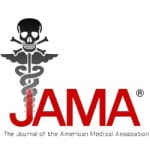Natural Health
The March to Regulate Vitamins: Bogus Study Claims Vitamin E Increases Prostate Cancer
The growing threat of total control over our food is advanced through junk science. The latest is a Journal of the American Medical Association (JAMA) piece that claims Vitamin E is linked to an increase in prostate cancer, even though the study’s flaw is blatant.
The JAMA article, titled “Vitamin E and the Risk of Prostate Cancer“, concludes:
Dietary supplementation with vitamin E significantly increased the risk of prostate cancer among healthy men.
The Study’s Flaw
The study’s conclusion would be a matter of great concern, if it had used real Vitamin E. But it didn’t. They used an artificial construct called all-rac-alpha-tocopherol acetate. There is only one natural form of Vitamin E, RRR-alpha-tocopherol. The three Rs refer to the positioning of three methyl cation groups (CH3).
The CH3 group is placed at several locations in the Vitamin E molecule. In natural Vitamin E, they are always positioned to the “right”. However, in artificial Vitamin E, at least one of them, and sometimes all of them, will be positioned to the “left”.
Many bodily functions are based on more than the elements that compose a molecule. A prime example is hormones, in which they are recognized only if they’re shaped right. Clearly, all-rac-alpha-tocopherol acetate shouldn’t even be labeledas Vitamin E.
Therefore, synthetic Vitamin E is not a replacement for natural Vitamin E.
Therefore, the JAMA study is junk science, fit only to fill garbage bins.
Authors Cover Themselves
Interestingly, the authors of the study seem to be aware of their subterfuge. They’ve covered themselves in the conclusion:
Extended follow-up of SELECT participants shows that healthy men with average risk of prostate cancer subjected to contemporary community standards of screening and biopsy who took a common dose and formulation of vitamin E (400 IU/d) have a significantly increased risk of prostate cancer.
Notice the careful use of terms, referring to participants “who took a common dose and formulation of vitamin E”. No commentary suggested that not using natural Vitamin E would mean that their study is virtually meaningless—in spite of the fact that they obviously know it could make a difference.
Who Benefits from Such Junk Science?
Who benefits from such a study? It should come as no surprise that Big Pharma does. Big Pharma makes synthetic-fake vitamins, including synthetic-face Vitamin E. Here’s Merck’s chemical description of their Vitamin E.
The argument could be made that studies suggesting risks from vitamins work against Big Pharma, but that’s taking a narrow view of the situation. Getting vitamins off store shelves and into Conventional Medicine’s discretion leaves the field open to pharmaceutical corporations. That leaves them free sell their poisons in the same way that they sell their poison drugs—through doctors’ prescriptions and at enormously jacked-up prices. First, though, they need to convince people that there’s danger in natural vitamins, so they’ll be willing to accept draconian limits on access to them. (Note also that conventional medicine also benefits, by forcing people to pay doctors for access to products that had always been freely available.)
Funding for the study was provided by agencies neck-deep in Big Pharma money: the National Cancer Institute, the National Institutes of Health (NIH), and the National Center for Complementary and Alternative Medicine (a division of the NIH). Of course, the study’s publisher, JAMA, is utterly dependent on Big Pharma money.
Because the trial did not use real Vitamin E, its results are meaningless. The news media promoting the study should be ashamed. They clearly demonstrate an utter lack of investigative reporting. This latest faked connection between a vitamin E and prostate cancer follows a string of such reports in the last few years*. All of them are junk science.
Sources:
- The Alpha-tocopherol Transfer Protein and Vitamin E Adequacy
- *Bogus Vitamin Studies
Tagged big pharma, jama, journal of the american medical association, junk science, junk science and vitamins, pharmaceutical drugs, pharmaceuticals, vitamin e













